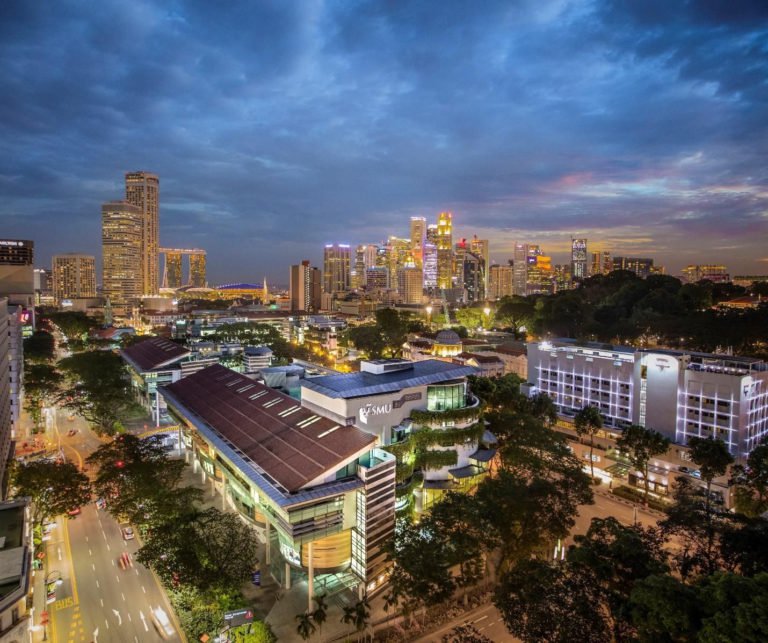3 big questions when choosing a Masters degree
3 Big questions when choosing a Master’s Degree
Learning is a lifelong journey. Graduating from college and getting a first job might be the end goal for some, but many would consider pursuing postgraduate studies sometime in their working life. It is the natural next step towards broadening skillsets and career advancement. The changes in our economy and businesses, constantly being disrupted by new business models and technological advances mean there is a need to invest in your own learning.
There are many factors to consider in selecting the right combination of university, programme/discipline and location when it comes to pursuing postgraduate studies. To help you make the right decision, here are 3 important things to consider when looking for a Master’s degree:
1. What are your goals?


Right off the bat, you must be sure of your objectives in pursuing a graduate education. You may consider a graduate degree that allows you to gain deeper expertise on a particular subject matter. Or you may be looking for ways to broaden your knowledge through an MBA-type programme. This means you will need to invest some time in researching and figuring out your career goals. If you are unsure, it would probably be best to decide on your goals before deciding to apply for just any programme for the sake of getting a degree.
Check out the courses in your target field or specialization. Will you be interested to take them? Will these help you progress at work or in your current profession? Many programmes may sound alike, but there are differences in curriculum and approach at different universities.
There are programmes that help you gain new deep knowledge in specific disciplines, and there are also broad-based programmes that will help you be a more well-rounded professionals. For example, a Masters in Management or MBA would help you broaden your breadth of skillsets and knowledge. But if specialization is what you are after, in depth programmes in accounting, finance, economics or information technology may be more suitable for your goals.
Graduate school will not be as easy as your undergraduate education—it will entail you to give up some time from work to attend school. The required course units will be less as Masters courses are shorter than undergraduate programmes. However they demand a higher intensity and require significant commitment, and often, sacrifice in terms of opportunity costs, financing and time away from home or loved ones. This is why figuring out your goals is a very important first step in your journey to a postgraduate degree.
2. Where do you want to go?

For many, beyond learning goals, there may be other aspirational objectives as well. This may include the desire to study overseas. Studying overseas opens your eyes to other cultures, taste the joy (and responsibilities) of living away from home, expand your circle of network considerably and perhaps even open doors to employment prospects and opportunities.
If you think studying overseas is an option for you, and that you have the financial means to do so, where would you go?
The big destinations, such as USA, Australia, UK and Europe, have their own attractions. But you may want to take into account some international student mobility megatrends noted by ICEF in its 2016 report. Asian higher education systems are steadily strengthening and are more affordable (both tuition fees and living costs). Students all over the world are adding Asian destinations to their list of destination options.
In Asia, Singapore is natural place to consider. Known for its business-friendly international outlook, along for reputation for being a modern, cosmopolitan yet peaceful, safe and clean city/country. As a gateway to and from Asia, Singapore offers the best of “east and west”. Many corporate headquarters are located in Singapore, and this means higher market demands which usually translate to more career prospects and opportunities.
3. Which University?


Singapore Management University
Singapore Management University (SMU) is a specialist university, internationally recognised for its world-class research and distinguished teaching. SMU’s education is known for its highly interactive, collaborative and project-based approach to learning. SMU’s city campus is a modern facility located in the heart of downtown Singapore, fostering strategic linkages with business, government and the wider community.
SMU is the only university in Singapore with AACSB, EQUIS and AMBA accreditation. Many of its 18 postgraduate programmes are ranked by Financial Times and QS. SMU students also have the opportunity to learn beyond their discipline for their holistic development. SMU’s Postgraduate Career Service Office help our students secure internship and job opportunities. SMU graduates are actively recruited not only by employers at all levels of government, but also by financial institutions, think tanks and research institutions, international agencies, the private sector, and non-profit organisations.
This article was reproduced with permission from Inquirer.net and originally appeared in https://lifestyle.inquirer.net/321353/3-big-questions-when-choosing-a-masters-degree/ on 23 January 2019
Discover your potential through our Masters programmes. Join us for SMU Masters Day Online on 27 March. Reserve your seat here.







